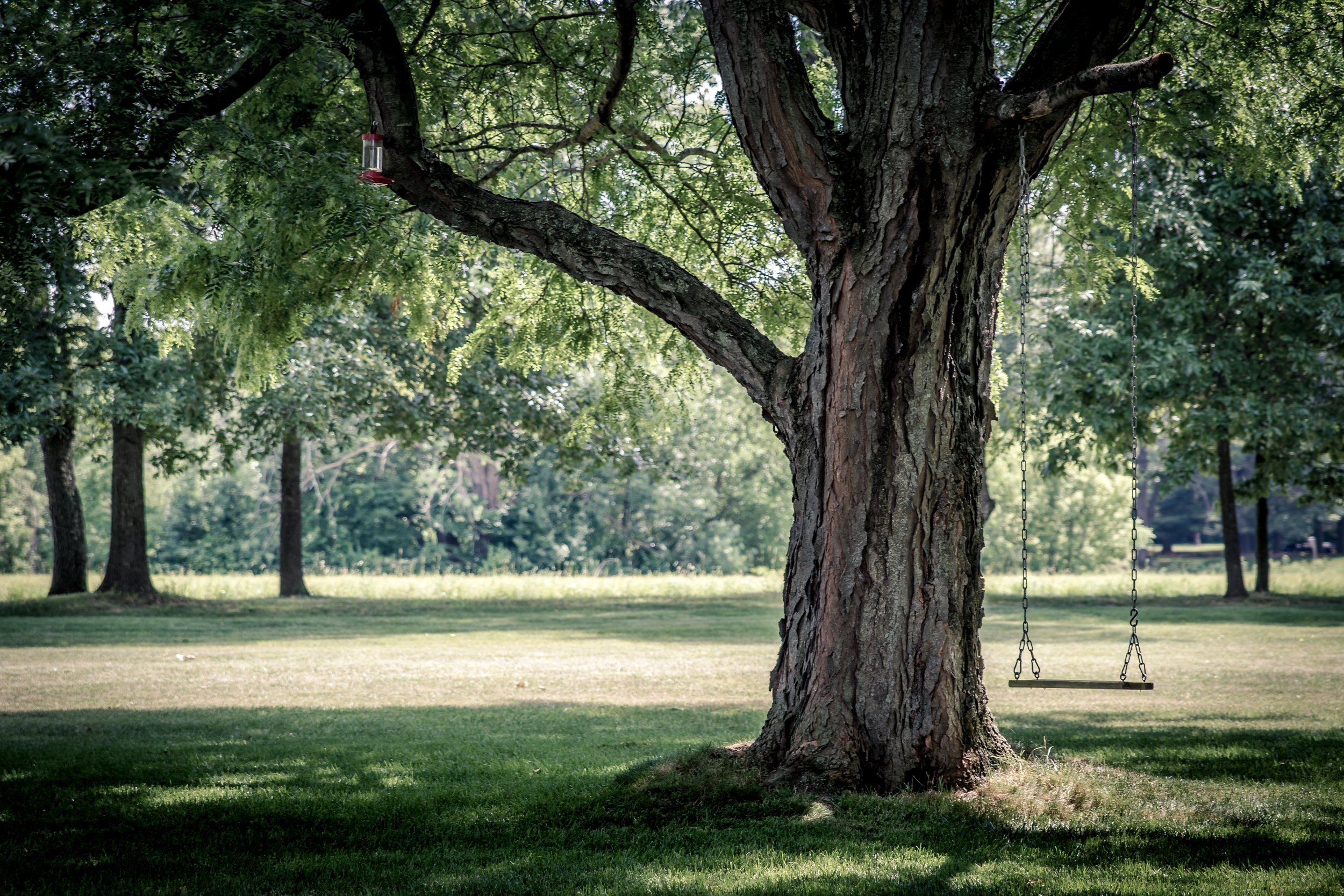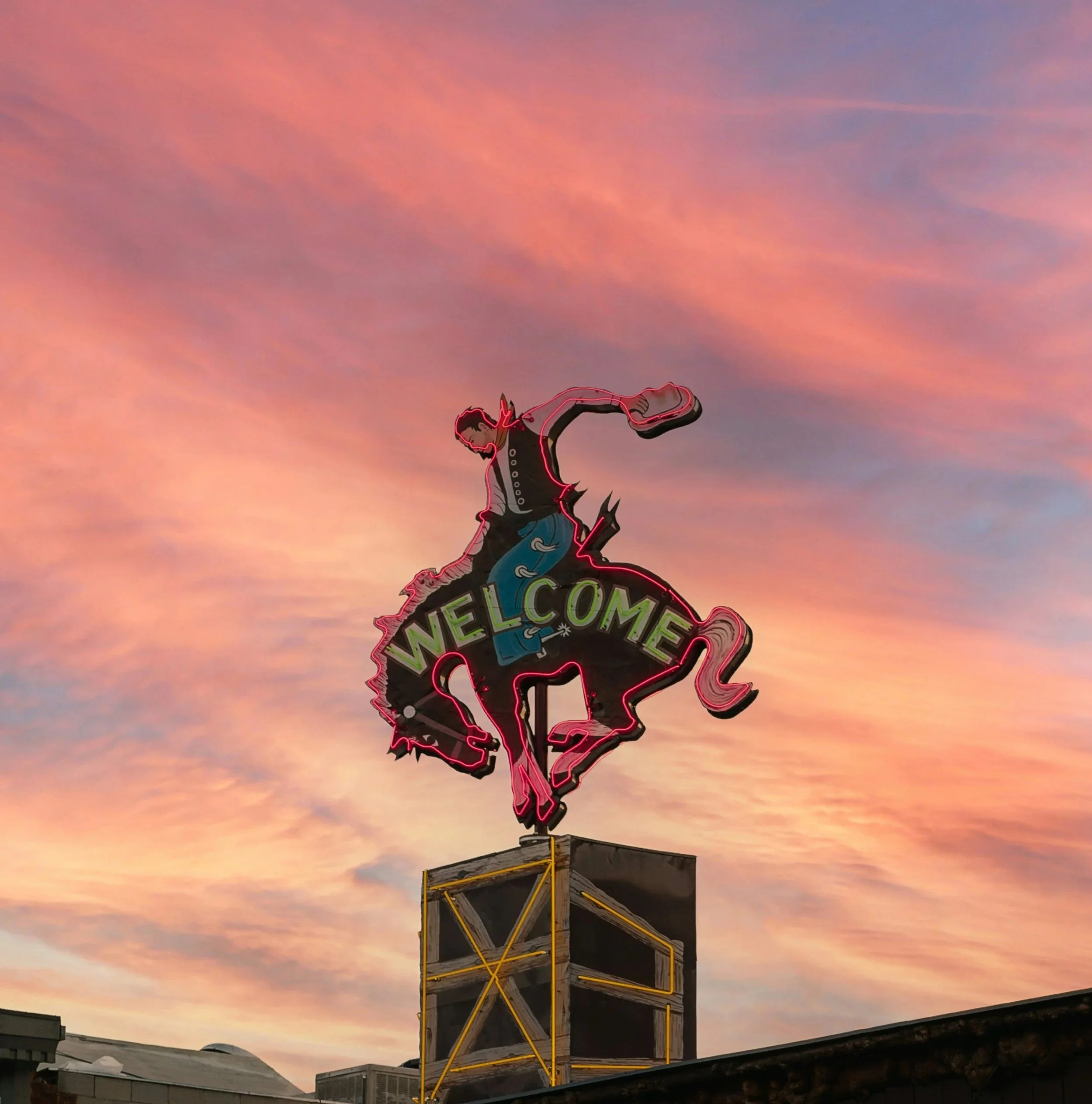To the Teen on the Swings

You always appeared in the playground alone, dressed in a black t-shirt and dark jeans, the only brightness a thin gold chain around your neck. Tall and lanky, you looked about nineteen. You went to the park early weekday mornings, as I did with my infant daughter, when the playground was relatively empty. Those were the early days of the pandemic in New Jersey, and I had nowhere to go besides the park and my apartment. I was trying to avoid crowds. You were, too, though I suspect for different reasons. Some days, you approached and then turned around if you saw too many people in the park or children on your swing set.
The pandemic allowed me and my husband to teach remotely and take our daughter out of daycare. For me, those days were joyful. Between my classes, I took her to the park, where cherry trees and magnolias announced the start of spring. I pushed her on the infant swings or sat on the saucer with her on my lap. For the first three months of her life, she would not sleep unless we rocked her. With her head on my shoulder, I gently bounced, moving my feet heel to toe, heel to toe, heel to toe. I moved like that so often that I found myself rocking even when she was not in my arms.
You always chose one of the swings on the blue frame in the far corner, fifteen or twenty yards away from me. You pumped your legs and propelled yourself high into the air, much higher than I could with a baby on my lap. You swung, your face tilted to the sky, as if you were turning away from the chaos of the world and calming yourself with rhythmic movement.
I often spoke with strangers in the park: fellow parents as well as nannies, children, people exercising or walking their dogs, and couples out for a stroll. But despite my extroversion, I never spoke with you. You were too aloof, too melancholy, so I observed you from a distance. I watched you for a year and never even got close enough to study your face. I recognized you by your silence, your slow lonely walk to the playground, how high you swung, and how alienated you seemed, the only grown person on the swings without a child nearby. Yet I felt more connected to you than to most other people in the park.
In you, I recognized my teen self: skinny, always dressed in dark clothes, never making eye contact. I spent my adolescence in isolation, in the near-death grip of a heroin addiction that severed me from the rest of society. Baggy clothes made my skinny frame seem even smaller, and the hood of my sweatshirt was always pulled up, casting shadow over my grey face. Multiple stints in rehab failed, I was arrested twice, and my mother kicked me out of the house. The only person in my life was a boyfriend I did not love, and when he went to jail I was briefly homeless. One rainy afternoon with nowhere to go, I sat on the curb outside a convenience store, wrapped my arms around my knees, put my head down, and prayed to feel human again. That night I slept outside a church.
“Yet you, in your isolation, in your inability to be still—you would understand.”
Shortly before my twenty-first birthday, I went into my fifth rehab, a state-run treatment center for indigent addicts. I shared a room with five other women, one of whom crossed her arms over her chest and rocked herself to sleep every night. Her plastic mattress protector crinkled loudly, rhythmically, as she soothed herself. Like her, I could not bear stillness.
I got sober after that rehab, but for years I feared that without constant motion I would be pulled into an abyss of loss, that I would relapse, that I would never again be able to claw my way to the surface. Movement was an antidote to the heaviness heroin once brought me. A junkie high on heroin barely moves. Her shoulders slump, her pupils refuse to dilate, and her head, unable to fight the weight of gravity, falls forward. In sobriety, I hiked up mountains, ran long-distance races, and competed in triathlons. I couldn’t even stay still long enough to remain in one country. I moved to Ecuador and then Argentina before returning to the U.S.
By the time I started seeing you—solitary, swinging, staring at the sky—I had been sober for twenty-two years. The other people in the park seemed fully integrated into society, and I felt slightly alien around them. However inaccurate or unfair of me, I imagined that their life trajectories had been smooth, that they had transitioned from high school to college to careers and stable relationships without much difficulty. In the depth of my addiction, I sat on sidewalks, smoked cigarettes, and observed people taking walks, going out for lunch, laughing with friends. These and other quotidian activities were out of reach; they occurred on a plane of existence separate from me. At times, I felt like I was living underground.
In the park, I talked to other people about work, art, news, and parenting, but never about my personal history. Despite my doctorate, job, marriage, and house in the suburbs, I have never trusted many people with the details of my past. Yet you, in your isolation, in your inability to be still—you would understand. You would not judge me.
You leaned your head back, looked skyward, and stretched out your legs as if ready to launch into another world. I also turned my face to the sky, to the tree branches above me that moved gently, to the birds that circled, to the clouds that drifted and changed shape. In the peace of repetitive motion, my breaths grew longer, slower. Swaying, soothing, softly swinging, the burning world felt far away.
“All three of us swung simultaneously, you pulling me into my past, my baby moving me forward.”
In the fall, the windswept leaves swirled like swarms of insects between us. I pulled my daughter closer, my arms around her squishy torso, and wondered if you had anyone who could comfort you. On the swing, my daughter on my lap, I focused on our movement forward, what she and I were both becoming. Every day, her smiles became more frequent, her laughs louder. Her field of vision expanded. Newborns can’t see more than a few feet directly in front of them, but by around six months old, they can see their surroundings in three dimensions. My daughter, eyes wide in wonder, now noticed other children in the park. As her awareness expanded, so did mine. I paid more attention to the squirrels running along the fence, to the robins hopping outside the playground gate, to the blossoms that occasionally rained down from trees.
You, however, always seemed to be receding, the swing carrying you away from the world. At times you brought me with you, reminded me that I used to sit in dark corners jamming needles into scarred veins until I found a way to erase myself. Watching you, I felt once again as if I were on the margins of society. I looked at you, and then down at my daughter. I kissed her, humming as I did so to amplify the effect. She oriented me to the present and, as I watched her continual transformation, to the future. All three of us swung simultaneously, you pulling me into my past, my baby moving me forward.
My family left Montclair in the fall of 2021, and I never saw you again. I no longer have the luxury of weekday mornings at the playground. My daughter, now a toddler, would not sit quietly on the swing anyway. Now she shouts, “Higher, mommy, again!” and tells me she wants to swing high enough to touch the moon, the stars, the planets. I show her how to pump her legs.
I still think about you. I hope that you have found human connection and a path back into this world. Or perhaps you are still at the playground on weekday mornings, swinging, soothing, receding from the rest of us.
About the Author
Victoria Livingstone’s essays, poetry, journalistic pieces, and translations have appeared in The Washington Post, Joyland Magazine, Literary Mama, Pangyrus, The Dallas Review: Reunion Online, Asymptote, TAB: The Journal of Poetry & Poetics, Inside Higher Ed, and elsewhere. She is the translator of Pablo García’s Song from the Underworld (Achiote Press), a book of contemporary Maya poetry. She holds a doctorate in Hispanic literature and was a Fulbright scholar in Brazil. She is writing a book on motherhood. You can find her on Twitter @ToriaJL
Read Victoria’s “Behind the Essay” interview in our newsletter.
Header photo by Ryan Hafey.
Edited by Tusshara Nalakumar Srilatha.











